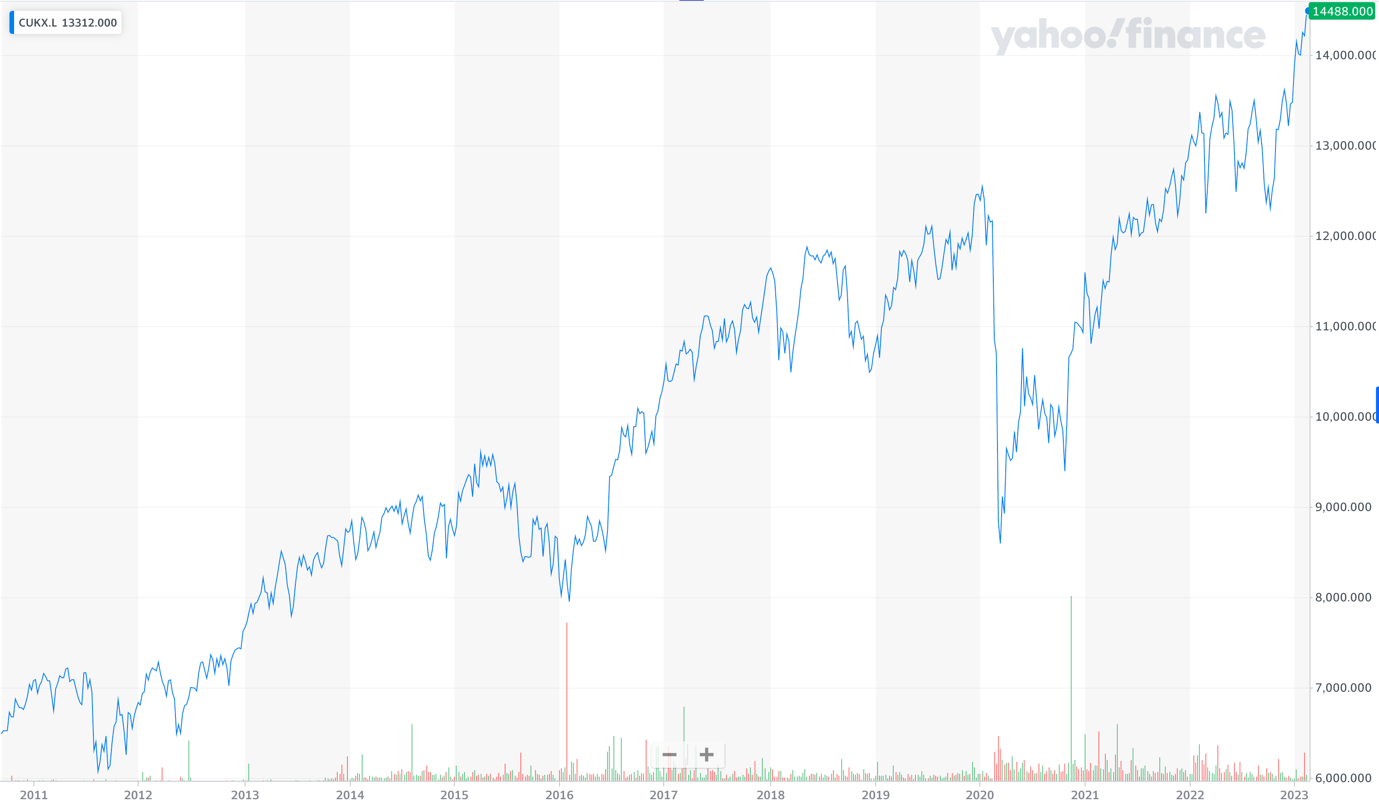Last week the financial news headlines were littered with exciting, positive reports about the stock market reaching new all-time highs!
Could it be that it’s time to bust out the party poppers and champagne?
In a word, the answer is: no.
While I believe there are some great times to come for investors, we’re not out of the metaphorical woods yet.
And we’re most definitely in a recession – regardless of what propaganda the government might spin out at you.
But try telling people on social media or the actual media about it.
There was euphoria when the biggest 100 stocks on the London Stock Exchange were punching up to record highs.
Was it the proof needed that: the UK was avoiding a recession; that growth was back, here to stay; and the good times lay ahead?
As noted, the answer is: no.
You see the thing about the stock market is that it never really tells you what’s going on in an economy. What a stock market is good at is telling you which sectors of an economy are doing well.
However, what if something like the FTSE 100 is by design set up to always win over time? If that’s the case – maybe we need to look a little harder at this very widely followed index.
The stock market’s Premier League
If you look closely at the FTSE 100 you see a very skewed list of companies.
Here are the 15 biggest components of the FTSE 100: Shell, AstraZeneca, HSBC Holdings, Unilever, BP, Diageo, British American Tobacco, Rio Tinto, Glencore, GSK, RELX, Reckitt Benckiser, Anglo American, National Grid and Prudential.
Of those, Shell represents 8.89% of the index, AstraZeneca 8.12%, HSBC, 6.02%, Unilever 5.19% and BP 4.92%.
Just five companies make up over 33% of the FTSE 100.
5% of the FTSE 100 accounts for a third of its weightings. Add in the next five, and you’ll see that the top ten companies represent about half of the entire index.
Now let me seriously ask you this. Do you think the fortunes of five to ten giant companies with global businesses who just happen to be listed on the London Stock Exchange are accurately reflecting the state of the UK economy?
In this context, global businesses mean that all of those companies generate a lot of their revenues from other countries. Many of them are also listed in other countries, pay tax in other countries as well as the UK: in fact, many of them don’t rely on the UK at all.
What this means is that if you want to talk about whether or not the UK is or isn’t in a recession, or how healthy the economy is, don’t throw the performance of the FTSE 100 in the discussion, please.
Here’s the other thing about a large index like the FTSE 100: it rebalances. That means that the composition of the index actually changes over time.
Admittedly, you wouldn’t necessarily realise that if you only looked at those 15 big companies mentioned above: they are pretty much always in the index.
But for the remaining 85-odd companies, they change a bit like the Premier League and Championship League – some companies get relegated to the FTSE 250, while others get promoted up from the FTSE 250.
In the December 2022 quarterly review, Dechra Pharmaceuticals, Harbour Energy (which had been promoted in the September review) and Intermediate Capital Group all fell out of the FTSE 100.
Meanwhile, Abrdn (which was relegated in the September review), Beazley and Weir Group were all promoted into the FTSE 100.
I bring up the point about index rebalancing because it somewhat buffers the performance of the index.
Suppose that a company’s business is doing really badly and that the stock price is declining. As its market capitalisation falls beyond a certain point, it will drop out of the FTSE 100.
Its place will be filled by a FTSE 250 stock whose operations are in good shape, whose share price is rising and whose stock market capitalisation is growing.
In other words, there is a bias in favour of companies (and sectors) that have been performing well in the recent past.
Even if the FTSE 100 did not include the 15 global titans discussed above, it would not provide a good representation of the UK economy as a whole.
Of course, the FTSE 250, which is said to be more reflective of the domestic economy (as it’s made up of smaller and more UK-focused companies), also rebalances. And that when it does, there is the same bias towards winners.
The losers simply drop away, the good companies come in. This doesn’t tell us an economy is robust and recession proof. All it tells us is that certain sectors and businesses are recession-proof and robust.
The fact that five of the top 15 companies in the FTSE 100 are massive energy or mining companies has an interesting implication. These are the names that are keeping the index at or near an all-time high.
What would happen to the profits, prospects, share prices and market capitalisation of these companies – and the FTSE 100 itself – if they became subject to the massive windfall taxes that some people are calling for?
Which leads me to my final point today – if you can’t beat ‘em, join ‘em.
Profiting of you, profiting off me
I’d suggest that while things like giant energy companies making huge amounts of money – apparently at your expense – may be very annoying (which it is), there’s also little that you can do about it…
… except to buy and own shares in those companies. Profit from the companies that are profiting from you.
That’s not to say go and buy Shell and BP: you need to ensure you’re doing far more research in these companies before taking that move.
But perhaps taking aim at an index as a core part of a portfolio isn’t such a bad idea.
Take for instance, the iShares FTSE 100 ETF.
It has gone from £65 in late 2010 to £145 today in early 2023. That is a return of 123% in about 12 and a half years. That is a respectable, but not stellar performance.
But also… it’s a 123% gain when a lot of companies have come and gone over that time.
If you’re a long-term investor that’s looking for consistent performance over the years, and you know that the index is always going to rebalance to the biggest and financially strongest companies, it’s a pretty tempting proposition.
It means that you’re not placing all your eggs in one basket. It means that you’re going to get exposure to the biggest of the big, regardless of what they do, or where they do it. It means that in recessionary times you’ll at least end up with the best that the market has to offer. There are a lot advantages to this approach.
Of course, there are times when the index crashes. Just look at 2015 to 2016 (when energy prices were falling) and early 2020 when the Covid pandemic caused global chaos. These anomalies happen: so you do have to consider your timing and realise that not everything always goes up in a straight line.
But, over the long-term, “joining ‘em” makes up for being “beaten by ‘em.”
Regards,

Sam Volkering
Co-editor, Fortune & Freedom




